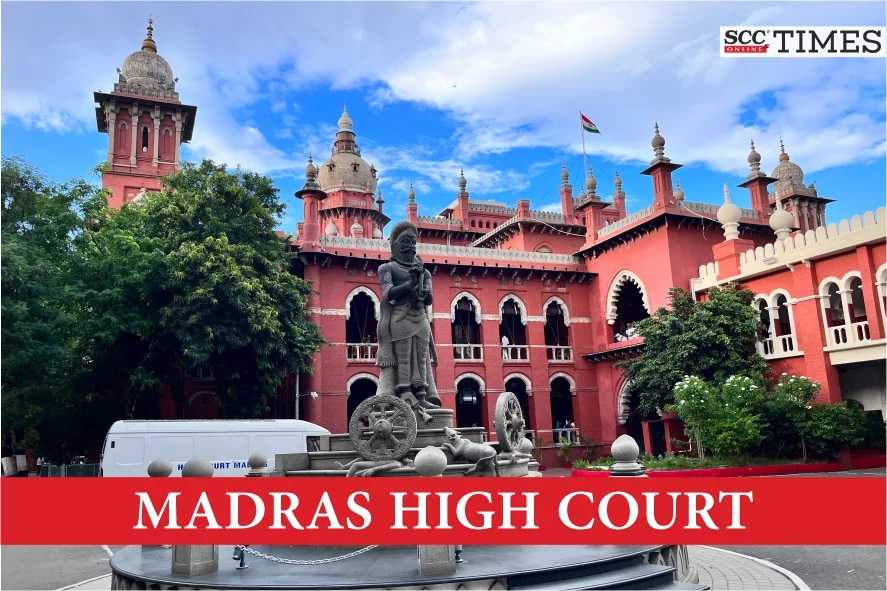Madras High Court: The present petition was filed under Section 483 of the Bharatiya Nagarik Suraksha Sanhita, 2023 read with Section 212(6) of the Companies Act, 2013 (‘the Companies Act’), seeking enlargement of the petitioner on bail in a case on the file of the XV Additional City Civil Court, Chennai/Special Court for trial of SFIO Cases. A Single Judge Bench of A.D. Jagadish Chandira, J., opined that petitioner was alleged to have indulged into cheating of Banks and siphoning off the public money using puppet Companies, writing off the stocks, inventories and receivables and thus was facing serious economic offences and fraud of a great magnitude. The Court held that the present petition seeking bail could not be entertained as the presence of the petitioner was required at the stage of framing of charges.
Background
Surana Group of Companies consisting of three companies, i.e., Surana Industries Limited (‘SIL’), Surana Corporation Limited (‘SCL’), and Surana Power Limited (‘SPL’) had borrowed Rs 1000 crores of money from various banks and later, went on liquidation under Insolvency and Bankruptcy Code, 2016 (‘IBC’) and was declared as NPA. Their total liability to the banks was of Rs 10238 crores, but the available assets of the companies were valued between Rs 215 crores to 645 crores, sufficient to meet only 2-6% of the total liabilities of the group of companies.
The petitioner was appointed as Vice President (Projects) in SPL in the meeting of Board of Directors dated 28-12-2008 and during his tenure as Group CEO of SIL and SPL, he had written off Rs 86.24 crores in connivance with his father. Similarly, the investigation revealed that the petitioner, in connivance with his father and other accused persons, had played key role in various activities relating to siphoning of public money obtained as loans from various banks by fraudulently showing the strength of the business with boosted/inflated figures. Thus, the petitioner’s active participation in the offences had resulted in his implication in the criminal complaint along with other accused persons.
Analysis, Law, and Decision
The Court noted that the present petition was a fifth one and on rejection of earlier three petitions, the petitioner approached the Supreme Court, however, could not succeed in obtaining bail and the subsequent bail petition moved by him before the Supreme Court was withdrawn seeking liberty to move the trial Court. Such application moved by the petitioner before the Trial Court stood dismissed and thus, the present petition was filed by the petitioner.
The Court opined that the present case was not a simple case where the petitioner was charged only for non-recovery of certain outstanding amounts from the debtors, but, the petitioner was alleged to have indulged into cheating of Banks and siphoning off the public money using puppet Companies, writing off the stocks, inventories and receivables and thus was facing serious economic offences and fraud of a great magnitude.
The Court noted that in earlier petitions, this Court had dealt with the gravity of offence alleged against the petitioner and non-compliance of the twin conditions stipulated under Section 212(6) of the Companies Act. The Court noted that the circumstances, rather change of circumstances, projected by the petitioner warranting consideration of this court to grant bail to the petitioner were that (a) completion of investigation; (b) long incarceration of the petitioner, for almost 30 months; and (c) grant of bail to a co-accused by this Court on 11-10-2022.
The Court observed that though investigation had been completed in the case, the presence of the petitioner was required at the stage of framing of charges and the evidence like statements given by witnesses to the SFIO and the communication addressed by the petitioner to the Banks would establish the role played by the petitioner and the control he had over the witnesses. Thus, the petitioner had not complied with the twin conditions stipulated under Section 212(6) of the Companies Act and in the event of grant of bail to the petitioner, there was every possibility for the evidence being tampered and the witnesses being influenced by him.
The Court opined that the case V. Senthil Balaji v. Enforcement Directorate, 2024 SCC OnLine SC 2626, referred to by the petitioner was not applicable to the present case as the trial in the present case, being one for offences under Companies Act, was not dependent on proving offences under any other Act and thereby the concept of long incarceration alone could not be a ground for grant of bail.
The Court thus held that the present petition seeking bail could not be entertained.
[Rahul Dinesh Surana v. Union of India, 2025 SCC OnLine Mad 928, decided on 10-01-2025]
Advocates who appeared in this case:
For the Petitioner: P.V. Balasubramaniam, Senior Advocate; M. Mohammed Riyaz, Vishnu Vardhan J
For the Respondent: B. Mohan, Special Public Prosecutor for SFIO






